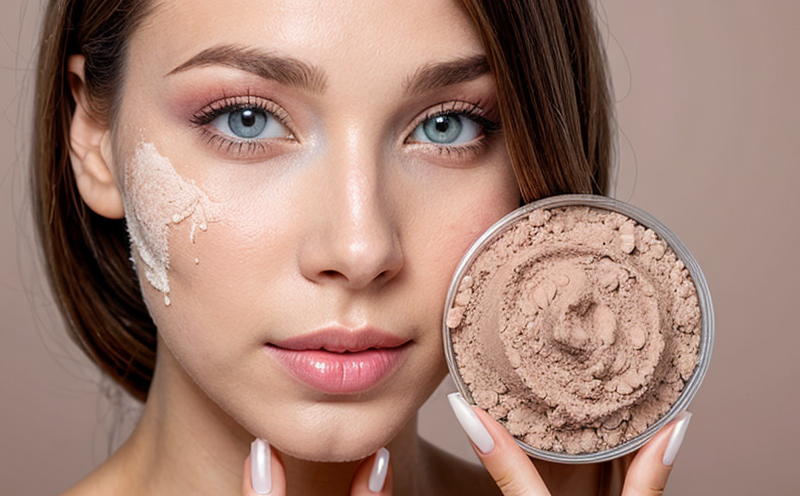Methylisothiazolinone (MI) Allergen Testing in Cosmetics
Methylisothiazolinone (MI), a widely used preservative in cosmetics and personal care products, has been associated with skin irritations and allergies. As the demand for safer cosmetic ingredients grows, stringent testing protocols are essential to ensure product safety. This section focuses on the specific process and importance of Methylisothiazolinone (MI) allergen testing in cosmetics.
The testing ensures that products meet regulatory standards, providing assurance for both manufacturers and consumers. Regulatory bodies such as the FDA, European Union Cosmetics Regulation (EC 1272/2006), and other national authorities mandate strict controls on the use of preservatives like MI to prevent allergic reactions and ensure consumer safety.
MI is a crucial component in many cosmetic formulations, particularly those that require extended shelf life. However, its presence can lead to sensitization issues, making allergen testing indispensable. Our laboratory adheres to international standards such as ISO 18539 and IEC 62760-1, which provide guidelines for the testing of preservatives in cosmetics.
The testing process involves several steps, including sample preparation, application of the test substance to a controlled environment, and observation for any allergic responses. This ensures that products meet the stringent requirements set by regulatory authorities and industry standards. For quality managers and compliance officers, this testing is crucial as it aligns with broader corporate sustainability goals.
R&D engineers must consider these tests when formulating new product lines to ensure they are safe and effective. The importance of accurate testing cannot be overstated in the context of consumer health and safety. By adhering to these rigorous protocols, we contribute to a safer cosmetic industry that meets the highest standards of quality.
In summary, Methylisothiazolinone allergen testing is a critical aspect of cosmetic product development. It ensures compliance with international regulations, enhances product safety, and builds consumer trust. This testing process is essential for manufacturers aiming to maintain their reputation in the cosmetics market.
Scope and Methodology
The scope of Methylisothiazolinone allergen testing encompasses a detailed evaluation of cosmetic products containing MI to ensure they do not cause adverse reactions. This includes assessing the potential for skin irritation, contact dermatitis, and sensitization. The methodology involves several key steps:
- Sample Preparation: Samples are prepared according to standard protocols defined by international standards such as ISO 18539.
- Application Procedure: The test substance is applied in a controlled environment, ensuring consistent exposure conditions.
- Data Collection and Analysis: Observations are made over a specified period, and data is collected for analysis. This includes recording any allergic reactions or sensitization effects.
- Reporting: Results are compiled into comprehensive reports that detail the findings of the testing process.
The methodology ensures that all steps are conducted with precision and adheres to strict quality control measures. This approach guarantees accurate results that can be relied upon for decision-making processes within cosmetic product development.
Our laboratory uses state-of-the-art equipment and follows rigorous protocols to ensure the reliability of test results. This commitment to accuracy is crucial in maintaining compliance with regulatory standards and ensuring consumer safety.
Customer Impact and Satisfaction
The impact of Methylisothiazolinone allergen testing on customers extends beyond mere adherence to regulations; it enhances the overall quality and reputation of cosmetic products. By conducting thorough tests, we ensure that products are safe for use by a wide range of consumers, including those with sensitivities or allergies.
Customer satisfaction is paramount in our approach. Our comprehensive testing process not only helps manufacturers meet regulatory requirements but also builds trust with their customer base. This trust is reinforced through transparent communication and the provision of detailed test results to customers.
The feedback we receive from satisfied clients underscores the importance of this service. They appreciate the peace of mind that comes with knowing their products are rigorously tested for safety. Additionally, our testing process helps manufacturers differentiate themselves in a competitive market by offering safer and more reliable products.
For quality managers and compliance officers, this level of assurance is invaluable. It allows them to make informed decisions about product development and marketing strategies, ensuring that they meet or exceed industry standards. In doing so, they contribute to the overall improvement of cosmetic safety and consumer confidence.
International Acceptance and Recognition
Methylisothiazolinone allergen testing is widely recognized internationally for its role in ensuring product safety and compliance with regulatory requirements. Regulatory bodies such as the FDA, ECHA (European Chemicals Agency), and various national authorities have established stringent guidelines to regulate the use of preservatives like MI.
The acceptance and recognition of this testing method are crucial for manufacturers operating globally. Adherence to international standards ensures that products meet the requirements set by different jurisdictions worldwide. This compliance is essential for avoiding legal issues and maintaining a positive reputation in the market.
Our laboratory's expertise in Methylisothiazolinone allergen testing has earned us recognition from industry leaders and regulatory bodies. Our clients benefit from this global acceptance, as it allows them to confidently introduce their products into diverse markets without compromising on safety or quality.
The international acceptance of our services is a testament to the high standards we maintain in all aspects of product testing. By aligning ourselves with established international protocols, we ensure that our customers are at the forefront of industry best practices. This commitment to excellence contributes to the overall improvement of cosmetic safety and consumer confidence worldwide.





